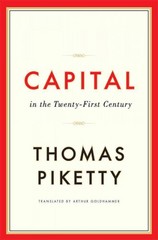Question
Economics (Week 10 Test) Question 1 (1 point) The owner/founder/manager of a firm is often referred to as: Question 1 options: An economist An entrepreneur
Economics (Week 10 Test)
Question 1(1 point)
The owner/founder/manager of a firm is often referred to as:
Question 1 options:
- An economist
- An entrepreneur
- A capitalist
- A registered representative
- None of the above
Question 2(1 point)
I own a bicycle factory in Dayton, Ohio. In the production of my bikes, my employees often use a paint sprayer. Which factor of production is a paint-sprayer?
Question 2 options:
- Entrepreneurial Skills
- Glazier
- Labor
- Capital
- Land
Question 3(1 point)
In that same factory, I employ people to use these paint-sprayers. Which factor of production does their work fall under?
Question 3 options:
- Glazier
- Labor
- Land
- Capital
- Entrepreneurial Skills
Question 4(1 point)
A very early use of the word "entrepreneur" is attributed to:
Question 4 options:
- John Maynard Keynes
- John Bates Clark
- George Gilder
- Jean-Baptiste Say
- John Francis Clark
Question 5(1 point)
From the perspective of morality, the quality of putting one's own money at risk to operate a company and pay workers a just wage is sometimes called:
Question 5 options:
- Munificence
- Demand-side economics
- Sloth
- Eutrapelia
- Thomism
Question 6(1 point)
According to Pope Saint John Paul II, in the physical world, "man's principal resource is ."
Question 6 options:
- Gold bullion
- A garden
- Himself
- Land
- Capital
Question 7(1 point)
Which of the following is NOT considered an entrepreneurial skill?
Question 7 options:
- The ability to manage other efficiently
- The ability to foresee market conditions
- The willingness to assume risk
- The ability and willingness to form monopolies
- The ability to incorporate relevant information for his firm's benefit
Question 8(1 point)
A French economist famously used an example to illustrate that "destruction is not profitable." What is this famous example called?
Question 8 options:
- Tu quoque fallacy
- The winter war fallacy
- The straw man fallacy
- The broken door fallacy
- The broken window fallacy
Question 9(1 point)
Who of the following is credited with developing the "Broken Window" fallacy?
Question 9 options:
- Frederic Bastiat
- Jean-Paul Sartre
- Jean Jacques Rousseau
- Mike Bastiat
- The author was anonymous
Question 10(1 point)
Which of the following is an example of "destruction benefitting everyone."
Question 10 options:
- Famine
- War
- Widespread Plague
- Earthquake
- None of the above
Question 11(1 point)
We can use the word "creation" in two senses: a theological sense or an economic sense. According to the Catholic Encyclopedia, what is creation in the theological sense?
Question 11 options:
- Improving on existing matter
- The act whereby God brings the entire substance of a thing into existence from a state of non-existence
- The act of destroying non-existence
- The process of changing things over a long period of time
- None of the above
Question 12(1 point)
In theeconomicsense, what is creation?
Question 12 options:
- Improving on existing matter
- The act whereby God brings the entire substance of a thing into existence from a state of non-existence
- The act of destroying non-existence
- The process of changing things over a long period of time
- None of the above
Question 13(1 point)
Which of the following is the best example of a raw material?
Question 13 options:
- A microchip
- A smartphone
- A bamboo plant
- A computer
- A car
Question 14(1 point)
Which is the best example of a finished material?
Question 14 options:
- A bamboo plant
- Water
- A hummingbird
- A television
- An oak tree
Question 15(1 point)
According to the catechism, "Everyone has the right of __; everyone should make legitimate use of his talents to contribute to the abundance that will benefit all and to harvest the just fruits of his labor."
Question 15 options:
- Forming a monopoly
- Economic initiative
- Cheating customers
- Underpaying employees
- Complete autonomy
Question 16(1 point)
One common economic FALLACY that is regularly taught on college campuses is that:
Question 16 options:
- Underpopulation limits creativity
- Overpopulation hurts economies
- Supply creates demand
- People are economically creative
- Everyone has a right to economic initiative
Step by Step Solution
There are 3 Steps involved in it
Step: 1

Get Instant Access to Expert-Tailored Solutions
See step-by-step solutions with expert insights and AI powered tools for academic success
Step: 2

Step: 3

Ace Your Homework with AI
Get the answers you need in no time with our AI-driven, step-by-step assistance
Get Started


